How Tory fortunes reversed in the 100 days since Owen Paterson vote
Friday marks 100 days since the vote on Owen Paterson’s suspension, a period in which the Prime Minister’s fortunes have dramatically reversed.

At the beginning of November 2021, Boris Johnson looked unassailable.
His party enjoyed a solid poll lead after an upbeat conference while Mr Johnson welcomed world leaders to Cop26 in Glasgow and eyed another decade as Prime Minister.
The Tories have slumped to almost their worst polling numbers since Mr Johnson took over, the Prime Minister’s personal approval rating has collapsed, 15 of his own MPs have called for his resignation and parties he attended are the subject of a police investigation.
The 100 days since the vote on Owen Paterson’s suspension has been marked by a series of scandals that veteran MP Sir Roger Gale told the PA news agency had been “a slow-motion car crash”.
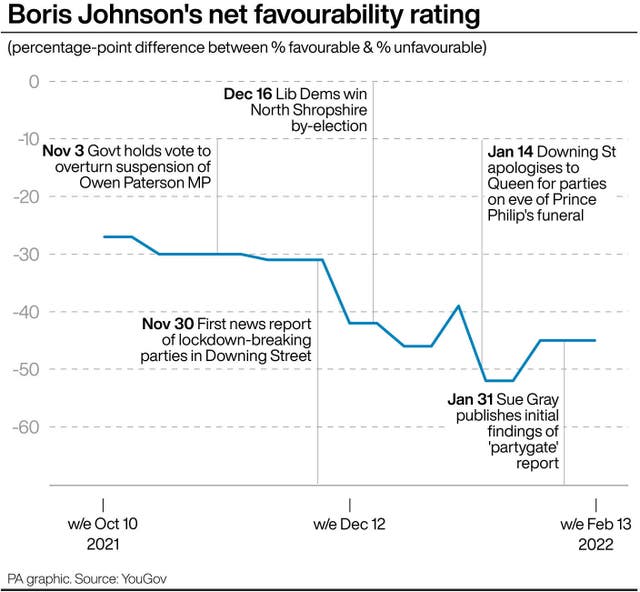
The row over Mr Paterson’s conduct had been running for a week since the publication of the Standards Committee’s report finding him guilty of breaching the rules against paid lobbying by MPs.
But it was the Prime Minister’s decision to back Mr Paterson and whip his MPs to support an overhaul of the standards system when the report came for a vote on November 3 that pushed it to the top of the news agenda.
Within 24 hours the Government had U-turned, saying it would abandon its plans for a review of the standards system after opposition parties refused to take part and angry constituents emailed their MPs.
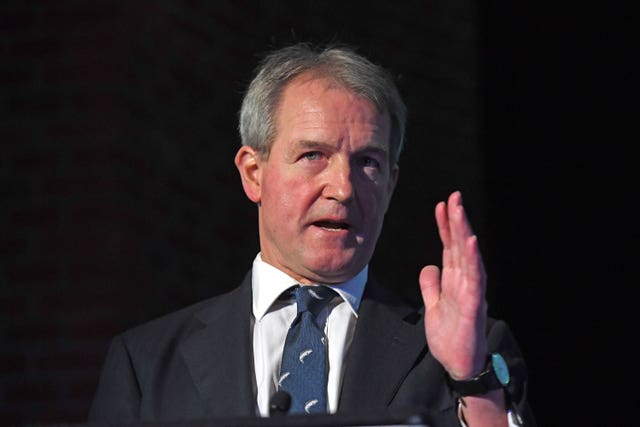
It was the latest in a series of U-turns that had seen MPs sent out to defend a decision only for it to be reversed shortly afterwards, as in the case of the row over sewage discharges the previous week.
This latest U-turn further eroded the whips’ authority and focused public attention on second jobs and sleaze.
– November 8 2021
Less than a week later, former attorney general Sir Geoffrey Cox was in the spotlight for earning around £1 million a year as a barrister and using proxy votes to take part in Commons divisions while working in the British Virgin Islands.
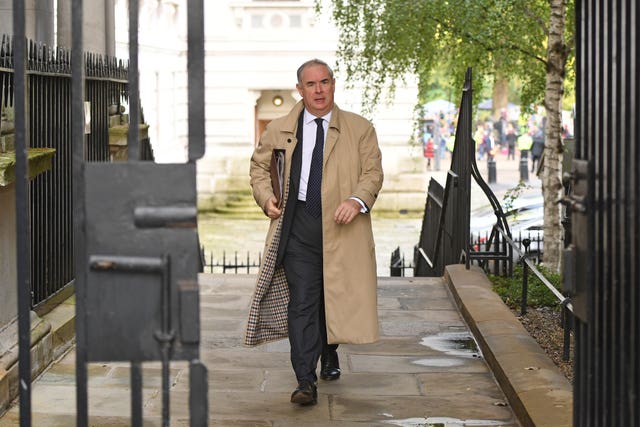
– November 18 2021
Up to this point, stories of Tory sleaze had not significantly altered Mr Johnson’s personal poll ratings but the party itself started to slip behind Labour.
But there were warning signs over the next two weeks. The Integrated Rail Plan failed to capture the news cycle as arguments about parliamentary standards dragged on.
This was a pattern that would be repeated over the coming weeks, as major policy announcements were overshadowed by scandal and the Government struggled to control the news agenda.
– November 22 2021
In the Commons, 19 Tory MPs rebelled against a controversial amendment to the Health and Care Act, suggesting a further erosion of his authority and his whips’ ability to keep backbenchers in line.
But outside Parliament, two contrasting speeches summed up Mr Johnson’s difficulties.
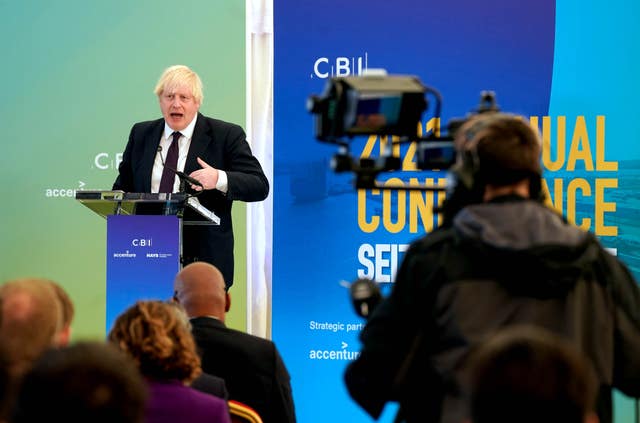
This was not significantly different from his usual oratorical style, but the reception was different. News reports described the speech as “bizarre”, while other critics called it “shambolic”, “a mess” and “embarrassing”.
One Tory backbencher told PA: “He is a lovable clown, the problem is no-one is laughing anymore, are they?”
That evening, then-Brexit minister Lord Frost delivered a speech at the Centre for Policy Studies’ (CPS) annual Margaret Thatcher Conference in which he called for greater divergence from the EU, lower taxes and more deregulation.
Lord Frost resigned from the Government less than a month later, and in hindsight his speech to the CPS suggested a discomfort with the direction Mr Johnson was taking and a growing disquiet among Tory libertarians.
– November 30 2021
The first story of what would become “partygate” broke on November 30, with the Daily Mirror reporting allegations that Downing Street staff had held three gatherings almost a year earlier, when London was under lockdown restrictions.
The story initially made few waves and the Conservatives comfortably won the Old Bexley and Sidcup by-election two days later.
– December 6 2021
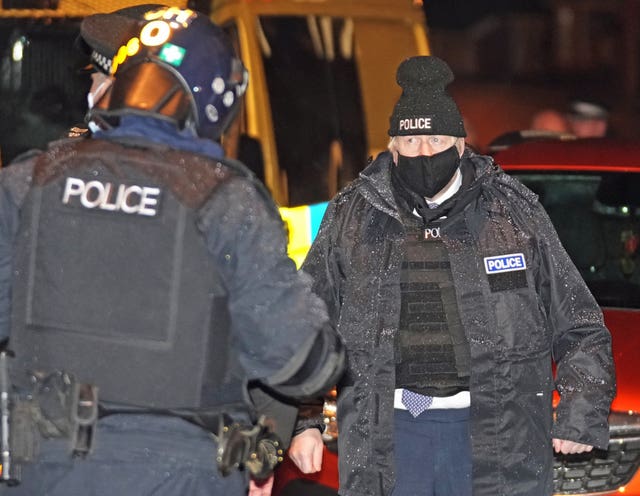
First, a video of then-Downing Street press secretary Allegra Stratton joking about parties during a press conference rehearsal leaked, apparently confirming the Mirror’s earlier reports that there had been parties.
Ms Stratton resigned a day later and Mr Johnson apologised at Prime Minister’s Questions, saying he was “furious” about the video and appointed Cabinet Secretary Simon Case to investigate the allegations.
December 9 brought a £17,800 fine from the Electoral Commission, which found the Conservatives had improperly declared donations from Lord Brownlow towards the refurbishment of Mr Johnson’s Downing Street flat.
Lord Geidt, the Prime Minister’s adviser on standards, had previously cleared Mr Johnson of wrongdoing, but the Electoral Commission investigation uncovered WhatsApp messages that raised further questions about what the Prime Minister knew about the source of the donations. Lord Geidt demanded “clarification” from Mr Johnson.
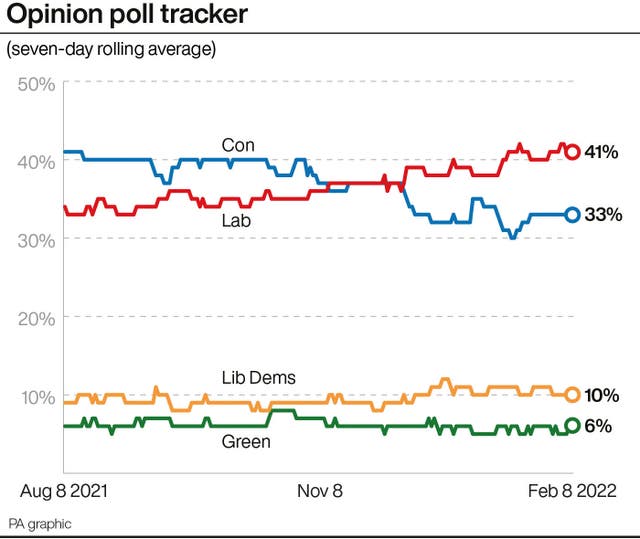
– December 14 2021
From this point on, a steady drip of partygate stories provided a constant distraction for the Government, including photographs of Mr Johnson at a Christmas quiz and sitting in the garden of Number 10 while staff apparently drank wine and chatted.
But December 14 also brought the first concrete sign of the Prime Minister’s waning authority as almost 100 of his backbenchers rebelled against new Covid-19 restrictions.
The rebels included MPs from across the party, including first-time rebels and even new MP Louie French, just 12 days after his election in Old Bexley and Sidcup. Even more worrying was that the Prime Minister had himself called wavering MPs to ask for their support, only for this personal plea to go largely ignored.
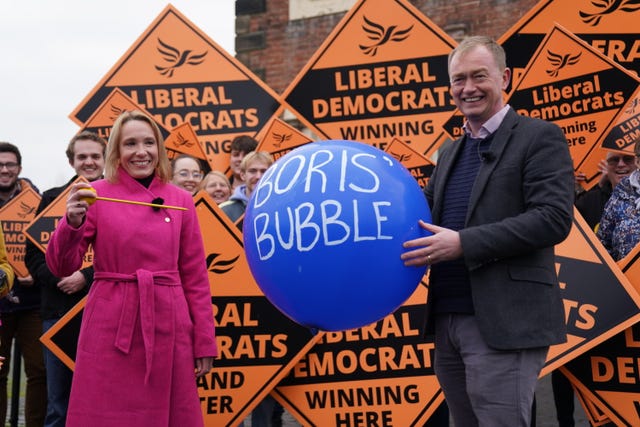
The next day, Sir Roger became the first to publicly call for Mr Johnson’s resignation, revealing he had written a no-confidence letter more than a year earlier following Dominic Cummings’ trip to Barnard Castle.
Looking back over the 100 days since November 3, Sir Roger told PA: “It’s a car crash, it’s a slow-motion car crash and under most other circumstances the Prime Minister would have resigned by now.”
He added: “We can’t go on like this, it’s one thing after another. The leopard’s not going to change its spots.”
By the end of the week, Lord Frost had resigned and Simon Case had recused himself from the partygate investigation after claims his staff had had their own Christmas party emerged. Sue Gray took over.
– January 1 2022
The new year brought little respite for the Government.
Leader of the Commons Jacob Rees-Mogg challenged Mr Johnson to scrap the planned National Insurance increase in the face of the rising cost of living at the first Cabinet meeting of the year. In another sign of deteriorating discipline, his comments were rapidly leaked to the press.
– January 10 2022
Partygate continued with the leak of an email from Mr Johnson’s private secretary Martin Reynolds inviting 100 people to a party in Downing Street while the country was still in lockdown and claims Mr Johnson had attended the gathering himself.
Those claims were confirmed at Prime Minister’s Questions when Mr Johnson once again apologised and admitted attending the party, which he said he believed was a “work event”.
Conservative MPs Douglas Ross, Caroline Nokes and William Wragg joined calls for his resignation, pushing the party’s internal divisions further into the open.
By the end of the week, Labour had hit 40% in the polls for the first time since July 2018 and achieved its biggest lead since 2013.
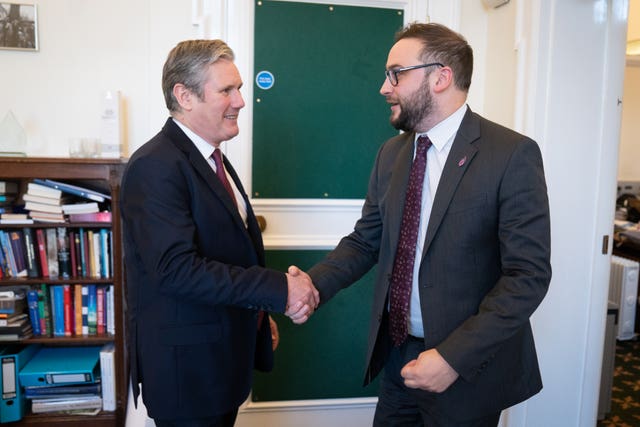
A day later, Mr Wragg used a select committee session to suggest Government whips had used tactics that verged on “blackmail” to secure support for the Prime Minister.
– January 24 2022
In one of his worst weeks so far, Mr Johnson suffered allegations that Islamophobia had contributed to Nusrat Ghani’s sacking as a minister, questions over his involvement in the decision to evacuate animals from Afghanistan after appeals from former marine Pen Farthing, the resignation of BEIS minister Lord Agnew over a failure to tackle fraud and the announcement of a Metropolitan Police investigation into partygate.
But the next week was no better. Ms Gray published a censored version of her report into partygate that nevertheless included several strong criticisms of Downing Street’s culture.
After once again apologising to the House, Mr Johnson attracted further criticism by accusing Labour leader Sir Keir Starmer of failing to prosecute Jimmy Savile while director of public prosecutions – a false claim featured in several right-wing conspiracy theories. Mr Johnson later “clarified” his remarks, saying he was referring to Sir Keir’s responsibility as head of the CPS rather than any decision he had personally made.
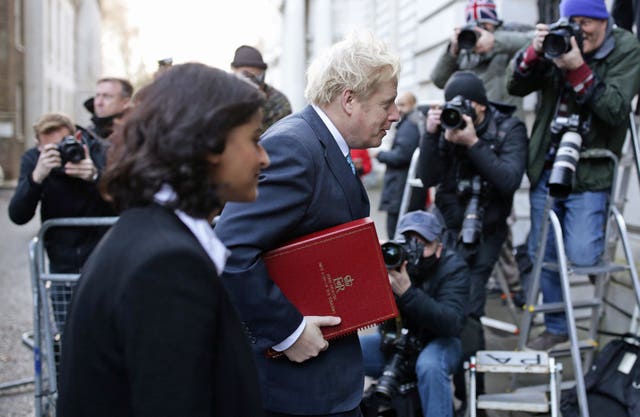
Ms Mirza’s resignation was followed by news that three top aides would quit Downing Street, including chief of staff Dan Rosenfield, director of communications Jack Doyle, and private secretary Mr Reynolds.
– February 8 2022
The Prime Minister’s reset continued with a mini-reshuffle, replacing chief whip Mark Spencer with Chris Heaton-Harris to rebuild links with the Brexiteer right of the party while dangling the prospect of a larger reshuffle later in the year to encourage the support of MPs hoping for promotion.
But Sir Roger said the Prime Minister was “fighting to the last drop of everyone else’s blood” in an effort that would change little while Mr Johnson remained in post.
He said: “This is a question of lack of judgment, and I think the man’s judgment is flawed.”
However, despite Labour’s lead now extending to nine points and Mr Johnson’s personal approval rating reaching –46, Sir Roger said his hand remained “glued to the door of Downing Street with Araldite”.





